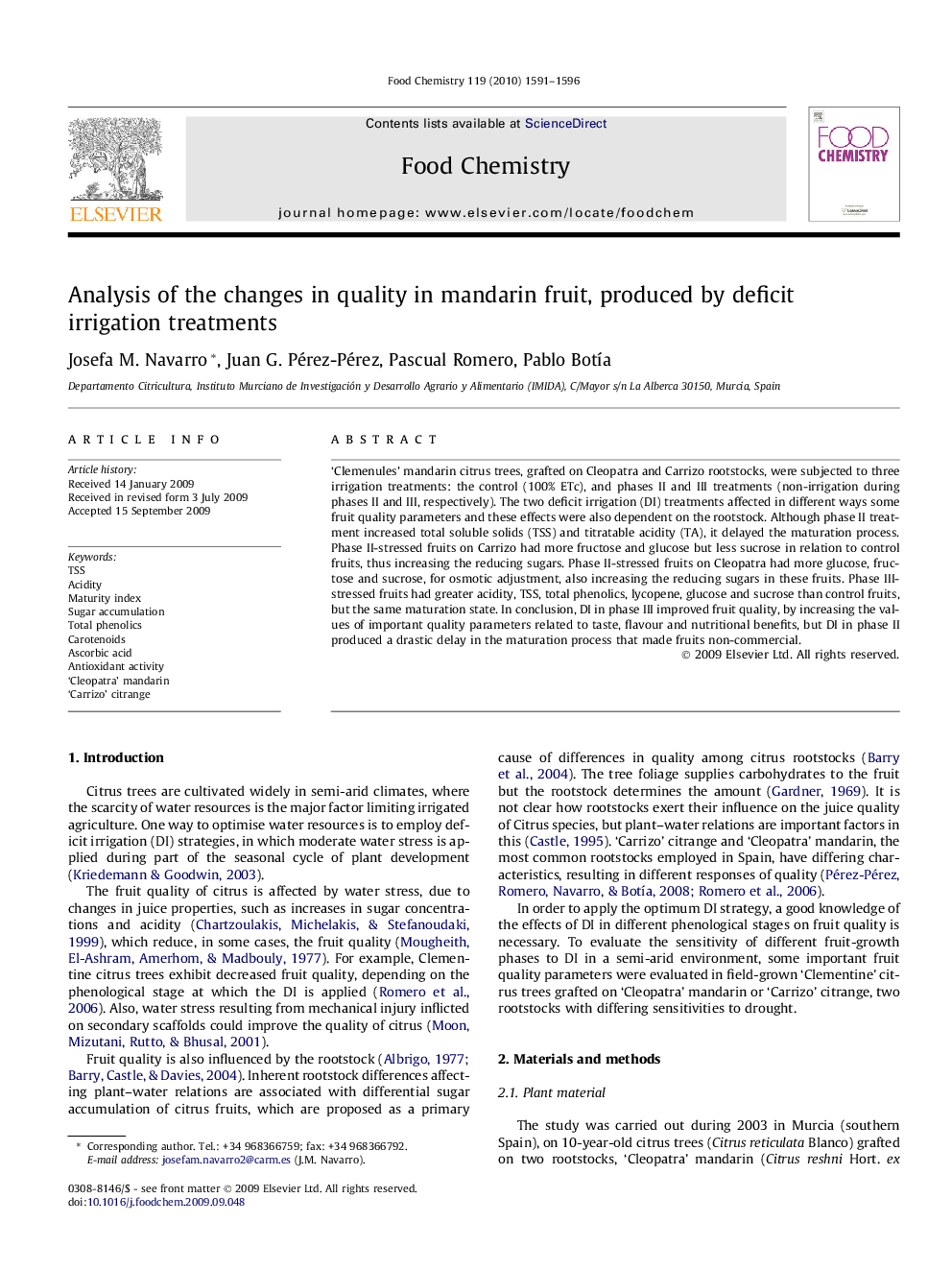| Article ID | Journal | Published Year | Pages | File Type |
|---|---|---|---|---|
| 1185441 | Food Chemistry | 2010 | 6 Pages |
‘Clemenules’ mandarin citrus trees, grafted on Cleopatra and Carrizo rootstocks, were subjected to three irrigation treatments: the control (100% ETc), and phases II and III treatments (non-irrigation during phases II and III, respectively). The two deficit irrigation (DI) treatments affected in different ways some fruit quality parameters and these effects were also dependent on the rootstock. Although phase II treatment increased total soluble solids (TSS) and titratable acidity (TA), it delayed the maturation process. Phase II-stressed fruits on Carrizo had more fructose and glucose but less sucrose in relation to control fruits, thus increasing the reducing sugars. Phase II-stressed fruits on Cleopatra had more glucose, fructose and sucrose, for osmotic adjustment, also increasing the reducing sugars in these fruits. Phase III-stressed fruits had greater acidity, TSS, total phenolics, lycopene, glucose and sucrose than control fruits, but the same maturation state. In conclusion, DI in phase III improved fruit quality, by increasing the values of important quality parameters related to taste, flavour and nutritional benefits, but DI in phase II produced a drastic delay in the maturation process that made fruits non-commercial.
